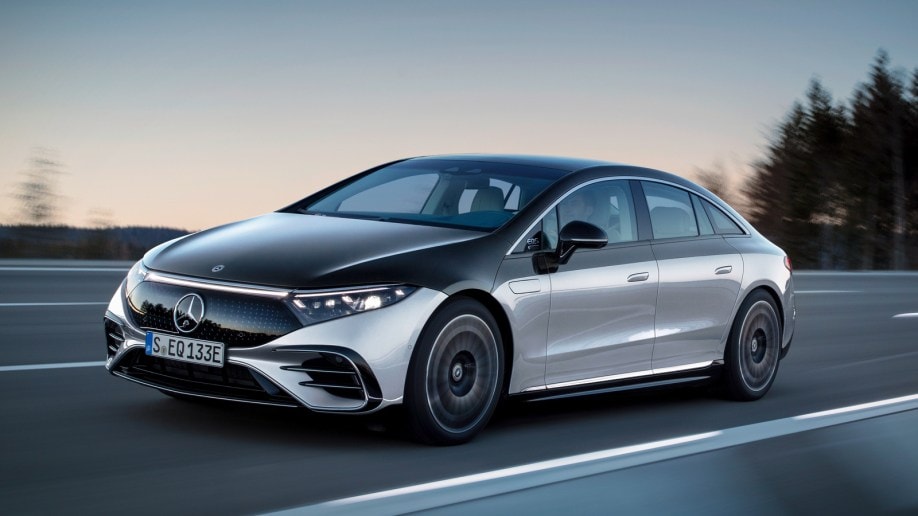Mercedes-Benz will sell nothing but electric vehicles (EVs) by 2030 in markets where infrastructure can support the switch, the German automotive giant said Thursday.
“The tipping point is getting closer, and we will be ready as markets switch to electric-only by the end of this decade,” said CEO Ola Kallenius.
Change Coming Where Feasible
The world’s oldest car company stopped short of placing an official end date for internal combustion engines. Instead, it said, it would convert to an all-electric sales lineup in markets where the change is feasible.
Mercedes has already announced five new EVs for the U.S. market. Sales of the first — the ultra-luxe EQS sedan – begin this fall.
Plans Echo Those of Many Rivals
The automotive industry is reorienting itself to go electric.
Many rivals have announced plans to go fully electric or mostly electric within a similar timeframe. General Motors plans a mostly electric lineup by 2035, with a pledge to be carbon-neutral by 2040. Audi says it has designed its last internal combustion engine and may go all-electric as soon as 2026. Porsche aims to be carbon-neutral by 2030. Volvo will sell nothing but electric cars by 2030.
Others are pursuing electrification strategies without a public target date. Honda has said it expects to sell only electric vehicles by 2040 but has not set a formal goal. Ford this year introduced an electric version of the F-Series pickup, America’s best-selling vehicle for 43 years running. Dodge, its image closely tied to its powerful V8 engines, has announced plans for an electric muscle car in 2024.
How Mercedes Will Get There
Mercedes outlined both short-term and long-term plans. In the very near future, the automaker plans to release one EV in every segment of the market it competes in by the end of 2022. By 2025, there will be an electric version of every Mercedes vehicle.
Kallenius said Mercedes will introduce three new EV platforms by 2025. Such platforms – a combination of chassis, suspension, battery, and electric motors – form the basis for multiple car designs. They can be scaled up or down and modified with motors on one or both axles to allow designers to create a variety of cars from one modular architecture.
Mercedes’ plans include one for midsize and large passenger cars, another for high-performance cars, and a third for vans and light commercial vehicles.
Executives ended the presentation with a teaser, a shadowed image of a high-end Mercedes-Maybach SUV based on the EQS platform. “In 2024, we will launch our full-electric G-Class as well,” promised Britta Seeger, board member for sales and marketing.








